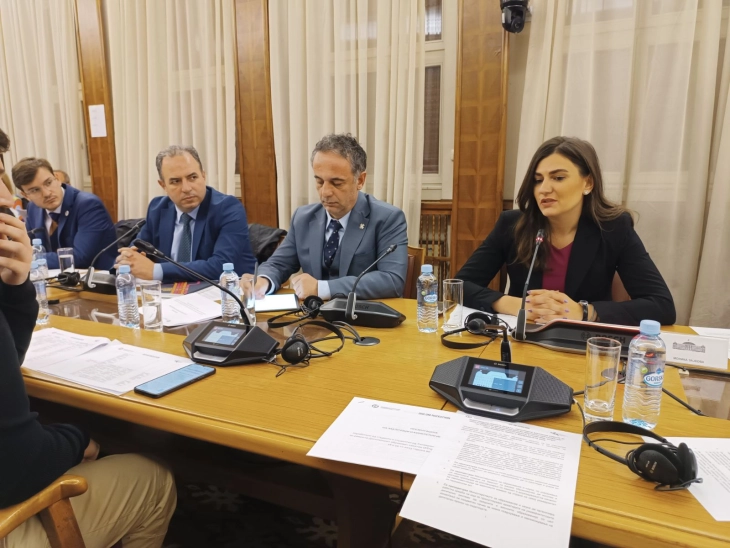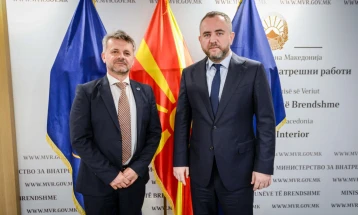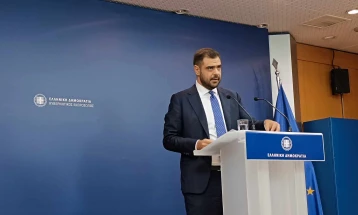Debate: Legal amendments for faster digitization of universities
- Digitizing higher education institutions was the focus of a Wednesday debate organized by the parliamentary club on youth affairs and policies in cooperation with the Forum for Educational Change Initiative #DigiU. The debate was preceded by a two-day hackathon for representatives from university assemblies, professors, and MPs from various parliamentary groups.

Skopje, 20 December 2023 (MIA) - Digitizing higher education institutions was the focus of a Wednesday debate organized by the parliamentary club on youth affairs and policies in cooperation with the Forum for Educational Change Initiative #DigiU. The debate was preceded by a two-day hackathon for representatives from university assemblies, professors, and MPs from various parliamentary groups.
Parliamentary club on youth affairs and policies president and MP, Monika Zajkova, said the hackathon highlighted two platforms, E-services and E-learning, and it also noted numerous legal obstacles in the work process itself which is the reason why higher education is not fully digitized. Five laws concerning this issue are to be submitted to Parliament, but what is key, according to her, is the law on archives, which creates an obstacle to universities to fully digitize, as they are also forced to have paper archives, followed by the laws on digital transformation and cybersecurity, because data must be protected in the databases at the universities.

"Another important thing is the national platform on interoperability and systems at the Education Ministry. First and secondary education are already digitally connected, and they share data amongst themselves, but paper documentation is still needed for enrolling in higher education. Institutions say that the reason for this is the autonomy of universities, but universities say that with the help of their own resources they are trying to install a system in order to be part of the national interoperability platform for exchanging data," Zajkova said.
Another question raised, she noted, was the possibility for the state to provide a unified software for universities. "In some countries, Education Ministries themselves provide such systems, i.e. a platform, by contracting service providers and making it available for all universities, while they maintain it and add information," Zajkova noted.
The debate and hackathon produced eleven recommendations, the most important being that the Finance Ministry must provide funds for improving or adding new functionality to the digital system in higher education, which will improve and generate required documents in digital form itself. It was also recommended that the Education Ministry establishes a working group with representatives from all parties involved and prepare a proposal for legal amendments to the law on higher education for accrediting study programs for electronic work and the use of an electronic gradebook, and submit it to Parliament.
"One of the recommendations has already been implemented, and that is the formation of the working group. Next week, those present at the public debate will meet with the Minister of Information Society and Administration to present the Ministry's plan and approach digital transformation step-by-step within legal frameworks," Zajkova stressed.
Referring to the discussions, she pointed out that Ss. Cyril and Methodius University in Skopje (UKIM) is struggling the most when it comes to digital transformation.
Minister of Information Society and Administration, Azir Aliu, spoke about the Government's efforts when it comes to digitization, and noted that as a society we must keep up with the needs and changes that occur in the digital world from the aspect of inclusivity. He mentioned the draft-law on cybersecurity and critical infrastructure, which foresees the creation of a digital transformation agency, which will soon enter parliamentary procedure. According to him, this law will be an "umbrella" so that the country can monitor current and digitization of society.
He also highlighted the need of creating active hubs for innovative solutions that professors, private sector, and students can use to create for their needs, discuss problems, and find innovative solutions. ssh/nn/
Photo: MIA







